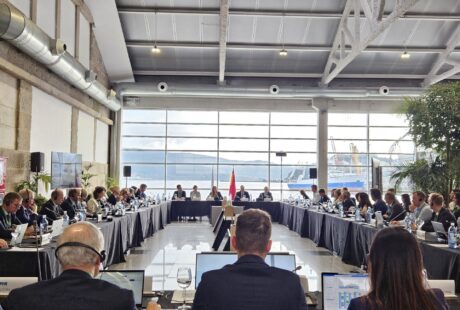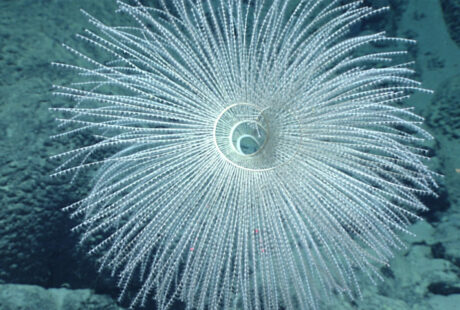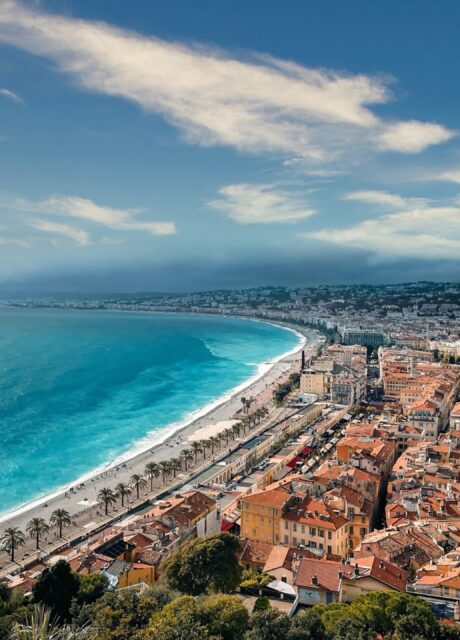Both the European Commission and the EFTA Surveillance Authority (ESA) support environmental organisations in the Førdefjord lawsuit ahead of the autumn hearing in the EFTA Court.
This article first appeared on Fjordsøkmålet Naturvernforbundet/Friends of the Earth Norway’s website. Naturvernforbundet is a member of Seas At Risk.
«We are now optimistic! We might actually win this case,» said Gytis Blazevicius, head of Young Friends of the Earth Norway.
The fjord lawsuit will be heard in the EFTA Court this autumn, and in this context, both the European Commission and ESA have issued statements. These statements are encouraging for Friends of the Earth Norway and Young Friends of the Earth Norway, who have filed a lawsuit to prevent mining waste dumping in Førdefjorden.
«Both the European Commission and ESA support our interpretation of the regulations. This supports our claim that the permits for mining with waste dumping in Førdefjorden are invalid,» said Blazevicius.
The Norwegian state has granted the mining company Nordic Mining permission to dump up to 170 million tons of mining waste in Førdefjorden, in the western part of Norway. The company is already in full swing building its facility and has announced that operations will begin in the autumn of 2024.
After the environmental organizations lost the lawsuit in the Oslo District Court, they appealed the case to the Borgarting Court of Appeal. Before the lawsuit is heard there, it will be reviewed by the EFTA Court, which will determine what is required to permit the pollution of a water resource like Førdefjorden. The Court will issue an advisory opinion that will carry significant weight when the case is heard in the Court of Appeal next year.
«This case is not just about Førdefjorden; it is about preventing pollution of fjords, lakes, and rivers both in Norway and across Europe. If the EFTA Court supports our view, as both ESA and the European Commission do, it means that vital water resources can be protected throughout the EU area,» said Truls Gulowsen, head of Friends of the Earth Norway.
Serious Undermining of the Water Directive
According to the EU’s Water Framework Directive, it is prohibited to pollute water resources like fjords, lakes, and rivers. If pollution is to be permitted, strict requirements must be met. The activity must be of overriding public interest, as stated in Article 4 of the Water Framework Directive. A central part of the state’s reasoning for allowing the mining waste dumping is the future revenues the mining operation will generate. The Norwegian state argues that this aligns with the directive’s requirement for overriding public interest. Here, both ESA and the European Commission disagree. They support the environmental organizations’ view that neither private profit, tax revenue, nor employee income qualifies under the directive’s criteria.
«Otherwise (…) any profitable venture could be classified as being in the overriding public interest, thereby seriously undermining the WFD (Water Framework Directive). The interests justifying a derogation must therefore, in ESA’s submission, be directly beneficial to the public», ESA wrote in its statement on July 16.
Critical Raw Materials Not Relevant
Although not mentioned in any of the permits, the Norwegian state has later argued that access to so-called critical raw materials justifies the mining as being of overriding public interest. The rutile to be extracted from the Engebø Mountain can be used in the production of titanium metal, which is on the EU’s list of critical minerals. However, the state does not find support here either. Both ESA and the European Commission state in their opinions that this alone is not sufficient to justify an exception.
«The considerations regarding the global supply of rutile do not seem to be relevant to the assessment,» writes the European Commission in its statement of July 19.
ESA, for its part, points out that the conditions constituting an overriding public interest must be presented before permits are granted and not afterward as the state has done. » Justifications for derogations to Article 4(1) WFD (Water Framework Directive) cannot be made ex post facto», writes ESA in its statement.
The Oslo District Court Ruling
The statements from the European Commission and ESA also do not support the ruling from the Oslo District Court, where the environmental organizations lost on all counts. The District Court’s ruling described future income for employees, shareholders, and public tax recipients as the «dominant benefit effect» of the mining project for Norwegian society. This understanding formed the basis for the District Court’s ruling. The European Commission, for its part, is crystal clear in its opinion that such considerations do not count as overriding public interests that can grant exceptions to the Water Framework Directive’s prohibition on polluting a water resource.
«The statements from the European Commission and ESA show that the ruling from the Oslo District Court was wrong. Both the Norwegian state and the Court are misguided in their application of the Water Framework Directive. It is high time that this important environmental law is interpreted and applied correctly, both for Førdefjorden and other water bodies in Norway and Europe,» said Gulowsen.
Posted on: 21 August 2024



